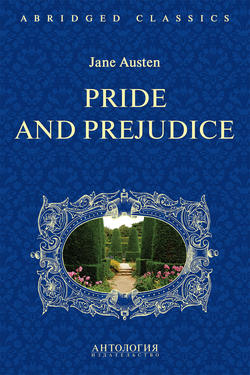Читать книгу Pride and Prejudice. Адаптированная книга для чтения на английском языке. Intermediate - Джейн Остин, Сет Грэм-Смит - Страница 4
Chapter 4
ОглавлениеAlone with Elizabeth, Jane told her how very much she admired Mr. Bingley. She said that he was sensible, good-natured, lively, had such easy manners; a perfectly well-bred man, just as a young man ought to be.
«He is also handsome», added Elizabeth, «a young man ought to be, if he possibly can. His character is thus complete».
«I was very much flattered when he asked me to dance a second time. I did not expect such a compliment».
«But I did. And that is one great difference between us. Compliments always take you by surprise, and me never. It was quite natural that he had asked you again. He could not fail to see that you were about five times as pretty as every other woman in the room. No thanks to his gallantry for that. Well, he certainly is very pleasant, and l allow you to like him. You have liked many a stupider person».
«Dear Lizzy!»
«Oh! you do have a tendency to like people in general. You never see a defect in anybody. Everybody is good and agreeable in your eyes. You have never spoken badly of a person in your life».
«I would not wish to condemn anyone hastily; but I always speak what I think».
«I know you do; and that's the wonder. With your good mind you are blind to the defects and stupidity of others! Pretended sincerity is common enough – one meets with it everywhere. But you alone are truly sincere and see the good in everybody's character and make it still better, and say nothing of the bad. And so you like this man's sisters, too, don't you? Their manners are different from his».
«At first I thought so, too. But they are very pleasing women when you talk with them. Miss Bingley is to live with her brother, and keep his house; and I am certain we'll find a very charming neighbor in her».
Elizabeth was silent. She was of a different opinion about Mr. Bingley's sisters. Their behaviour at the assembly had not shown any desire to be pleasant. Elizabeth was more observant and her character was firmer than her sister's, and as her judgment wasn't influenced by any attention to herself, she was not at all ready to approve them. They were very fine ladies; could be good-good-humoredwhen they were pleased, could make themselves pleasant when they chose it, but they were proud and conceited. They were rather beautiful, had been educated in one of the first private seminaries in town, had a fortune of twenty thousand pounds, spent more money than they ought, and kept company with people of high position, and were therefore sure that they had every right to think well of themselves, and poorly of others. They were of a respectable family in the north of England, and that circumstance they remembered much better than the fact that their brother's fortune and their own had been acquired by trade.
Mr. Bingley's father had left him a good fortune (nearly hundred thousand pounds), and Mr. Bingley thought of buying an estate, and sometimes made choice of his county; but as he now possessed a good house in London and rented a manor in Hertfordshire, it was doubtful to many of those who best knew his easy temper, whether he might not spend his life at Netherfield, and leave the buying of an estate to the next generation.
His sisters would very much like if he had an estate of his own; but, though he was now only a tenant, Miss Bingley was eager to preside at his table, and Mrs. Hurst, who had married a man of more fashion than fortune, also liked to consider his house as her home when it suited her. Mr. Bingley was just twenty three years old when he was tempted by an accidental recommendation to look at Netherfield House. He did look at it, and into it for half an hour, was pleased with the location and the main rooms, satisfied with what the owner said in its praise, and took it at once.
Between him and Darcy there was a very steady friendship, though they were absolutely opposite in character. Bingley attracted Darcy by the easiness, openness and docility of his temper, though no character could be of a greater contrast to his own, and though with his own temper he was never dissatisfied. Bingley had a greatest respect for Darcy and his judgement and opinion. Bingley was by no means stupid, but in intelligence, Darcy was the superior. He was clever. He was at the same time haughty, reserved, and hard to please, and his manners, though well-bred, were not pleasing. Therefore, everybody liked Bingley wherever he appeared; Darcy was always giving offense.
This difference between them could be clearly seen when they discussed the Meryton assembly. Bingley had never met with more pleasant people or prettier girls in his life; everybody had been most kind and attentive to him; there had been no formality; he had soon felt acquainted with everybody in the room; and, as to Miss Bennet, he could not think of an angel more beautiful. Darcy, on the contrary, had seen a collection of people in whom there was little beauty and no fashion; he hadn't felt the smallest interest for anybody of them, and from nobody received either attention or pleasure. He agreed that Miss Bennet was pretty, but she smiled too much.
Mr. Bingley's sisters agreed with Mr. Darcy. But they liked Miss Bennet, said she was a sweet girl, and they would like to know more of her. Thus their brother felt that he was free to think of her as he chose.
